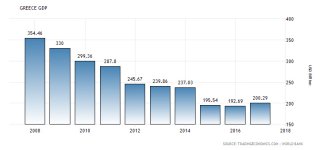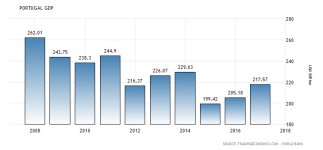The data tells us that when the crisis started to undermine growth (first in the June-quarter 2008) it was mainly household consumption spending and private investment spending exacerbated by on-going external deficits that failed. At that time, government spending was providing fiscal support to the economt.
Then the Brussels Groupthink stepped in and after recording 6 successive quarters of growth with domestic demand on the improve (with fiscal support), the economy went back into recession in the December-quarter 2010 and posted negative growth for the next 8 quarters – a lengthy recession.
During that second episode, the contribution of government spending to growth was systematically negative (the austerity effect), which undermined household consumption and private investment spending.
It was an act of sabotage.
In the more recent growth phase, investment spending remains weak. and the modst growth is being driven largely by household consumption expenditure with some modest support from recurrent public spending.
But such was the severity of the downturn (Portugal lost, at its worst, 9.6 per cent of the size of its economy – by the December-quarter 2012) as a result of the harsh austerity that was imposed under orders from Brussels (taking orders from Washington, in part) that even though there has been a some modest growth since the end of 2014, the economy is still 4.1 per cent smaller than what it was in the March-quarter 2008 (the last peak).
In other words, the Portuguese economy has still not regained the position it was in when the crisis struck.
1. Total consumption expenditure is still 3.6 per cent below where it was in the March-quarter 2008 (households minus 3.2 per cent; government minus 6.4 per cent).
2. Overall capital formation (investment) is down 32.2 per cent (a radical drop), with public capital expenditure falling significantly in recent years.
3. Domestic demand (spending) is down 9.8 per cent overall.
4. Export spending is up by 33.2 per cent. Net exports have made a positive contribution to growth in 5 of the 11 quarters since the June-quarter 2014, when sustained growth returned.
So the lingering recession effect should be borne in mind when the cheer squads come out in favour of Portugal. It has been an unmitigated disaster and remains in a parlous state.


